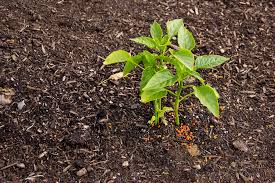
Apr . 23, 2024 15:09 Bumalik sa listahan
Unveiling the Impact of Chemical Fertilizers on Soil Health: A Comprehensive Guide
Unveiling the Impact of Chemical Fertilizers on Soil Health: A Comprehensive Guide
In the quest for higher agricultural productivity, chemical fertilizers have become an integral part of modern farming. However, their widespread use has raised concerns about their impact on soil health. This article aims to unveil the intricate relationship between chemical fertilizers and soil health, shedding light on the benefits, drawbacks, and sustainable alternatives for maintaining a balanced ecosystem.
Unveiling the Impact of Chemical Fertilizers on Soil Health
Chemical Fertilizers: A Double-Edged Sword
Chemical fertilizers have revolutionized agriculture by providing essential nutrients to crops. Yet, their excessive use can lead to soil degradation and water pollution. Striking a balance between nutrient enrichment and environmental conservation is crucial for sustainable farming.
Understanding Soil Microorganisms: A Key Factor
Soil is teeming with a diverse array of microorganisms that play a pivotal role in nutrient cycling and soil structure. Excessive chemical fertilizer application can disrupt this delicate ecosystem, affecting microbial diversity and overall soil health.
Erosion and Compaction: Unintended Consequences
Chemical fertilizers can contribute to soil erosion and compaction, diminishing its water-holding capacity and nutrient-retaining ability. This can lead to reduced crop yields and increased vulnerability to extreme weather events.
Nitrates and Water Contamination
One of the major concerns associated with chemical fertilizers is the leaching of nitrates into groundwater. High nitrate levels in drinking water can pose serious health risks to humans and animals, highlighting the need for judicious fertilizer application.
Altered pH Levels: Impact on Plant Growth
Chemical fertilizers can alter soil pH levels, making the soil more acidic or alkaline. This, in turn, affects nutrient availability and can hinder plant growth. Proper pH management is essential for optimizing nutrient uptake.
Loss of Organic Matter and Soil Structure
Overreliance on chemical fertilizers may discourage the use of organic materials, leading to a decline in soil organic matter. This organic matter is crucial for maintaining soil structure, moisture retention, and nutrient exchange.
Beneficial Microbes: The Unseen Heroes
Certain beneficial microbes in the soil promote plant health and protect against pests and diseases. Excessive chemical fertilizers can disrupt the delicate balance between these microbes, impacting plant resilience.
Sustainable Alternatives: Nurturing Soil Health
Humic Acid Potassium Humate Black Shiny Flakes Or Powder
Embracing Organic Farming Practices
Transitioning to organic farming practices can help mitigate the negative impact of chemical fertilizers. Organic fertilizers, cover cropping, and crop rotation enhance soil structure and encourage beneficial microorganisms.
Precision Agriculture: Targeted Nutrient Management
Precision agriculture utilizes technology to apply fertilizers precisely where needed. This approach minimizes over-application and reduces environmental pollution, while optimizing crop yields.
Nutrient Recycling: A Circular Approach
Recycling organic materials like crop residues and animal manure can replenish soil nutrients naturally. This approach reduces waste and enhances soil fertility, contributing to long-term sustainability.
Green Manure Cover Crops
Green manure cover crops, such as legumes, enrich the soil with nitrogen and organic matter. Integrating these crops into the farming system can reduce the reliance on chemical fertilizers and improve soil health.
FAQs (Frequently Asked Questions)
- How do chemical fertilizers affect soil health?
Chemical fertilizers can disrupt soil microbial communities, lead to erosion, alter pH levels, and contribute to water contamination.
2. What are the risks of water contamination from chemical fertilizers?
Chemical fertilizers can leach nitrates into groundwater, posing health risks to humans and animals that consume the contaminated water.
3. How can organic farming practices improve soil health?
Organic farming practices promote soil structure, microbial diversity, and nutrient cycling, contributing to enhanced soil health.
4. What is precision agriculture, and how does it benefit soil health?
Precision agriculture involves targeted fertilizer application using technology, minimizing overuse and reducing environmental impact.
5. What is the role of green manure cover crops in soil health?
Green manure cover crops, like legumes, enrich the soil with nutrients and organic matter, improving soil fertility and structure.
6. What are some sustainable alternatives to chemical fertilizers?
Embracing organic farming, nutrient recycling, and implementing precision agriculture are effective alternatives to mitigate the impact of chemical fertilizers on soil health.
Conclusion
Unveiling the impact of chemical fertilizers on soil health underscores the need for a balanced and sustainable approach to agriculture. While these fertilizers have undeniable benefits, their overuse can lead to detrimental effects on soil, water, and ecosystems. By adopting organic practices, precision agriculture, and other sustainable alternatives, farmers can promote soil health while ensuring long-term agricultural productivity.
-
Plant Growth with Balanced NPKS Fertilizers
BalitaJul.21,2025
-
Maximize Plant Growth with Nitrogen Fertilizer
BalitaJul.21,2025
-
High Quality Single Super Phosphate
BalitaJul.21,2025
-
High Grade Triple Super Phosphate
BalitaJul.21,2025
-
Enhance Root with Triple Superphosphate
BalitaJul.21,2025
-
Advanced Liquid NPK Fertilizers
BalitaJul.21,2025

